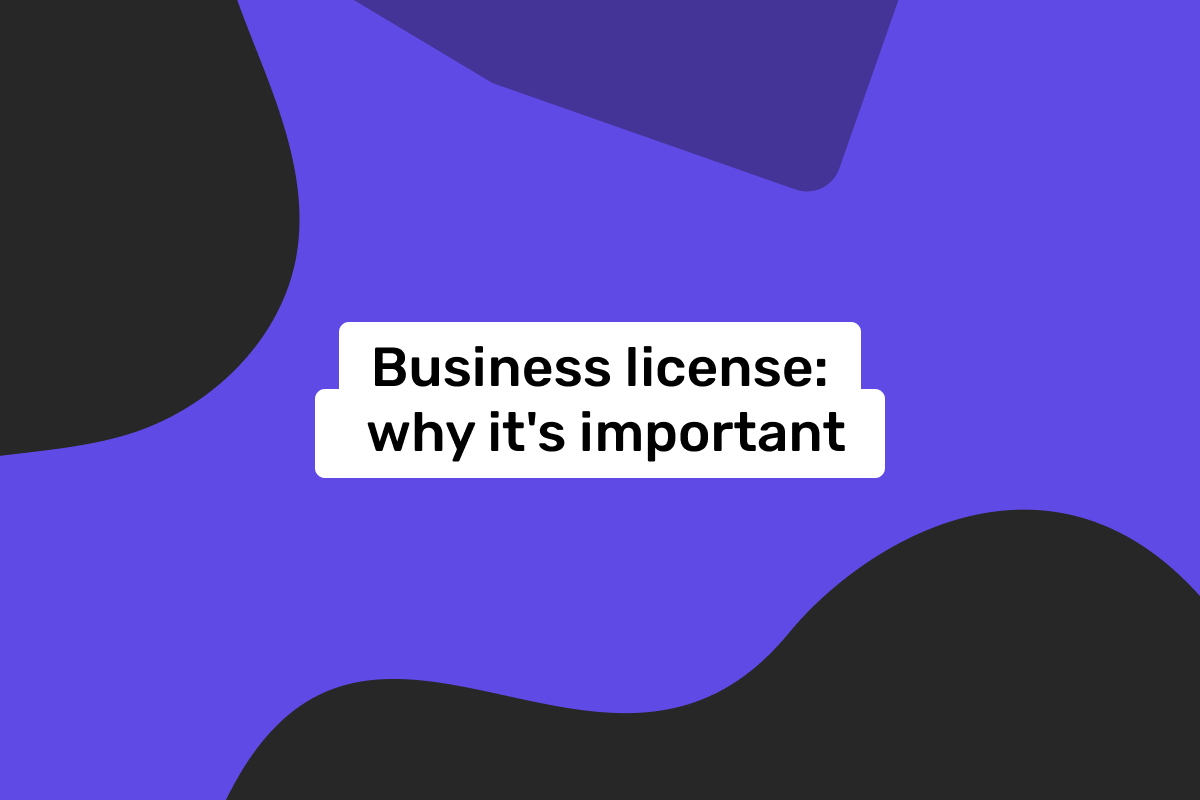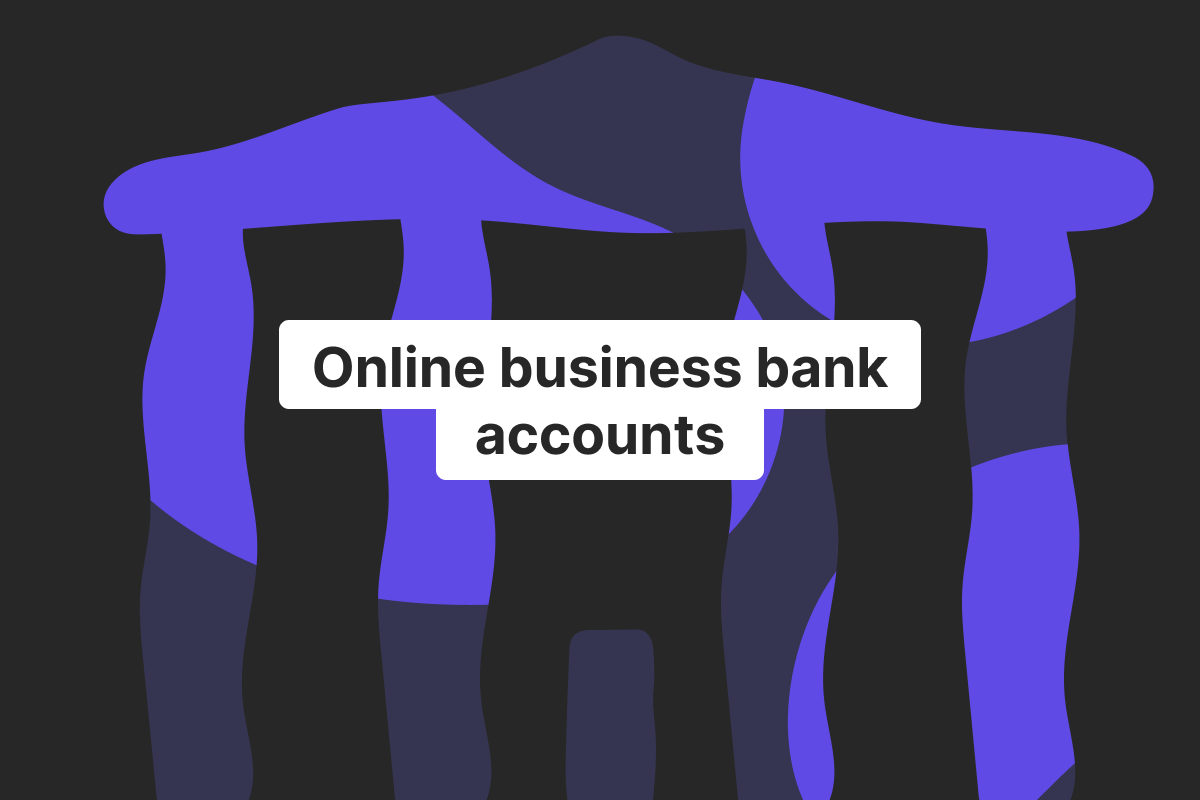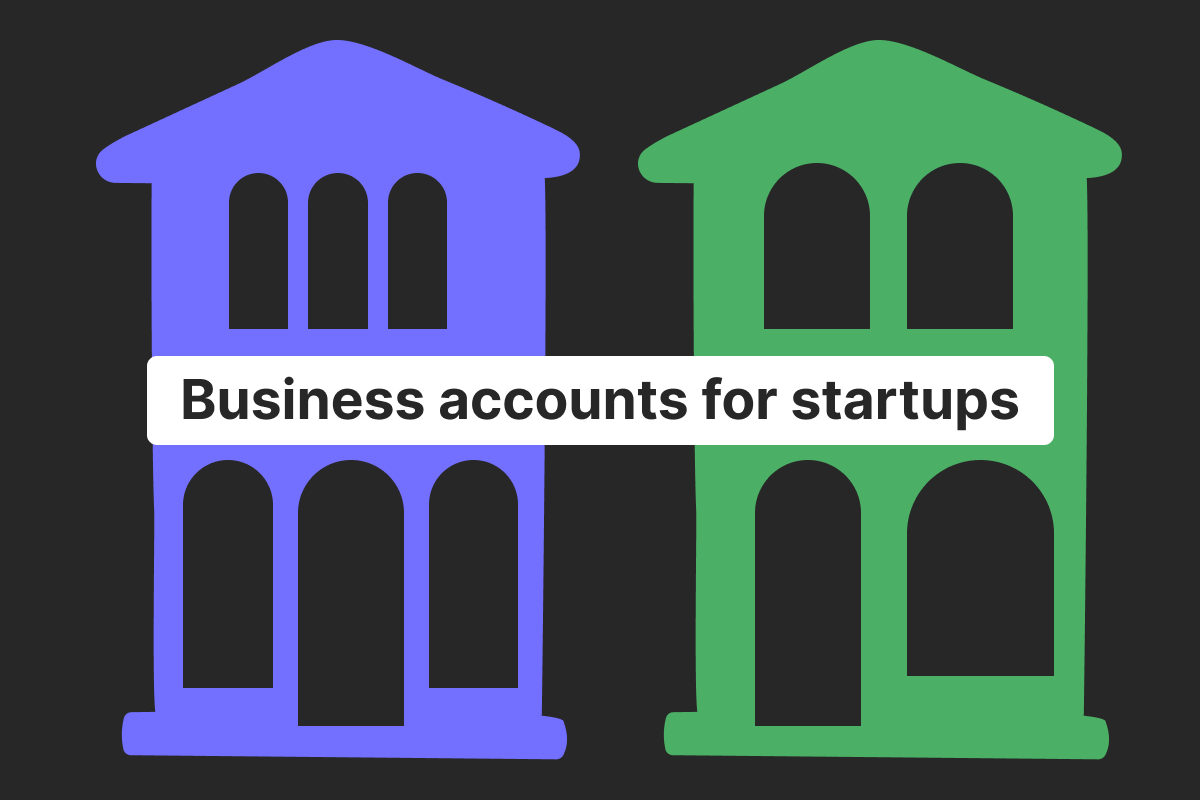Genome Blog / articles / What is a business license: a comprehensive guide for entrepreneurs
Jul. 31, 2024
Starting a company can be both exciting and chilling. On one hand, a person is driven by fresh ideas and passion for their craft. On the other hand, you need to go through various complicated processes to put your business on the map.
One such thing is a business license. Many businesses require it to provide services, sell goods, etc. So, how do you get a business license? Read on to find out as we explore different types of business licenses and what challenges you may face when obtaining one.
What is a business license?
A business license is a document issued by government agencies and/or local authorities confirming that a business adheres to laws and safety regulations and pays taxes within its jurisdiction.
It is one of the key components in establishing your business, as it is essentially a permit for the company’s operations.
There are different types of business licenses, depending on the company’s size, legal structure, industry, business operations, and business structure. The requirement for a business license is not dictated by the company’s structure (like a limited liability company, sole proprietorship, small business, corporation, or partnership) but by its business activity.
Types of business licenses and permits
Different types of business licenses exist. Let’s review some of the most common of them.
General business license
A general business license is a standard business license allowing a company to conduct its operations and business activities within a geographical area. The general business license allows a local licensing authority to ensure the business complies with regulations and pays taxes.
A general business license covers broad operational authority (i.e., retail sales, consulting services, etc.), while other licenses regulate specific aspects of a business’s activities.
Professional license
A professional license is the type of license that certain professionals require to perform their work tasks. Such a business license is needed to confirm that a person has the skills and experience necessary for the job. As a result, one must usually undergo training, education, and exams before qualifying for a professional license. Additionally, you must pass additional tests and exams to renew your license.
For example, suppose you want to work as a lawyer in the US. In that case, you must fulfill many professional requirements before getting a business license, including attaining a bachelor’s degree, going to law school, passing the Bar exam, and undergoing moral character reviews.
Generally, the industries that require a professional business license are:
- Healthcare;
- Legal sector;
- Education sector;
- Financial sector;
- Technical/engineering sectors;
- Real estate;
The list of professions can vary from country to country. You can check the EU’s regulated professions database to learn if you need a license to work in the EU, EEA, UK, and Switzerland.
Health and safety permits
Some companies require permits to prove they follow health, safety, and environmental standards.
Some companies (e.g., those in the food, manufacturing, and construction industries) must comply with health and safety regulations because their activities could pose risks to public health or safety. They must take precautions to protect employees and the public from accidents and exposure to hazardous substances.
The requirements for these permits vary significantly based on local regulations and the specific nature of the company.
Home-based business license
This type of business license is designed for freelancers, consultants, and other people who run a business from the comfort of their homes. Of course, not all these people need a business license, as home-based licenses are for people whose work can distract or intrude upon neighbors’ lives.
Concerns can relate to zoning laws, neighborhood traffic, noise, and the nature of the business activities. Such licenses are usually issued by a country or a local authority, for instance, a local council.
Specialty licenses
If your company is involved in activities that can imply risks to public health, safety, or the environment, you will need a business specialty license.
For example, if you plan on selling alcohol, you will need a liquor license, as alcoholic beverages are harmful to public health. Or, if you work in the childcare sphere, you’ll need a specialty license to meet all the safety requirements.
To get this license, your company will have to face inspections, tests, and validation of professional qualifications to ensure that you are able to handle high-risk processes.
Note that there are also industry licenses that cover highly regulated industries. The difference between the two is that the specialty licenses focus on specific activities of businesses, while industry licenses handle regulatory compliance on a broader scale.
Why do you need a business license?
Getting all the necessary licenses for your business is essential for several reasons:
- Legal compliance. Getting a license is crucial in ensuring businesses operate legally and follow laws and regulations imposed by the government and local authorities.
- Credibility. It can be difficult for a new business to gain trust among clients and potential donors. Getting a license, however, is a valuable step in ensuring your credibility goes up.
- Customer protection. Licenses require that companies meet safety and health standards, protecting their clients.
- Avoiding fines and penalties. Fines and penalties for businesses that are not operating legally are severe. Not to mention financial and reputational losses if you fail to obtain a license, which can lead to business closure.
How to get a business license
Now that we have covered the basics of a business license, let’s review the steps one usually needs to take to get one.
Determining the type of license you need
Check the main types of business licenses offered within your country or state. Determine the required license based on the industry you intend to work in, your services, future business activities, etc. Consult government agencies or trained professionals if you have trouble determining what business license suits your business structure.
Researching state and local requirements
Be thorough when researching local laws / federal government laws or the relevant government website to understand all the license requirements you must adhere to to get a business license.
File paperwork
Apply for a business license. Once you’ve determined the type of license you need, get the application form from your local business licensing office or download it from the government website.
Submitting required documentation
Find out which documents you need to submit along with your application form. These can include proof of identity, employer identification number, business plans, proof of address, certificates of compliance for health and safety, etc.
Paying applicable fees
Pay the fees for obtaining the license after receiving confirmation that you can proceed with the application process.
Awaiting approval
Once you have submitted the application form and all the necessary documents, you need to wait for your application to be reviewed. Not all businesses get approved quickly — for some, the process can take up to several weeks, depending on the number of compliance-related check-ups that need to be performed.
State vs. local business licenses
The main difference between the state and local business licenses is the scope of the company’s activity.
A state business license is required if your company engages in operations that a state-level agency regulates. For example, if you own a real estate company, it must adhere to operational requirements imposed on the whole state you operate in.
A local business license is required if your company operates within a particular locality. In other words, your business operations need to be appropriate for the location, and you need to pay local business taxes and obtain licenses and permits from a local authority. For instance, owning a restaurant (for which you’ll likely need a premises license) or a home business will qualify for a local business license.
Note that there are also federal licenses. A business needs a federal license if its operations are regulated nationally. For example, federal licenses are required for airline companies or radio broadcasters.
Renewing your business operating license
The world is moving fast, bringing on new challenges. This, in turn, calls for new regulations and compliance requirements to be implemented. That is why you will need to renew your business license. The timeframes for license renewal will differ depending on the industry sector. Some companies need to renew annually, while others have more time.
Here are the steps you need to take to renew your business license:
- Review the renewal requirements. Check the information to ensure you’re ready for your next license renewal. Start preparing in advance, as you might need to upgrade your operating policies to comply with new regulations.
- Fill out the application. Complete the renewal application provided by the licensing authority. Double-check that the data you filled out is accurate and reflects any changes in your business.
- Handle the fees. You will most likely need to pay charges for the license renewal; don’t forget about this part.
- Update your business information. If you had any changes to your business operations or company structure as a result of a license renewal, remember to disclose them in both your renewal application and legal documents.
Special considerations for home-based and online businesses
At first glance, it seems that home-based and online businesses don’t have many issues with licensing. However, these types of small businesses also need to adhere to regulations.
Some home-based small businesses have to deal with local zoning restrictions, which may limit certain activities in residential areas and often require a home occupation permit. Additionally, if these companies produce goods, they must adhere to health and safety standards.
At the same time, online companies must obtain a seller’s permit and a sales tax permit if they have a substantial presence in various states and adhere to the general business licensing requirements. They also need to comply with data protection laws as they accept customers’ business transactions.
Your small business needs to stay updated on regulations pertaining to their business activities to avoid any issues.
Common challenges and solutions
A business owner/sole proprietor can face various challenges when getting a license or a permit.
Complex regulations. It’s no secret that laws can be lengthy and challenging, making them difficult to navigate. They also vary by location and business type, which can lead to non-compliance or incorrect filings.
Solution: Try using local government websites and resources dedicated to businesses. For instance, the EU provides access to member states’ e-government portals that allow them to explore business opportunities and complete administrative procedures online.
Multiple jurisdictions. Obtaining a business license will be more challenging if your new business needs to operate in multiple countries. It must comply with licensing requirements in several jurisdictions, which can be confusing.
Solution: Consider partnering with companies that specialize in nationwide licensing and can help you establish businesses in multiple countries.
Long application procedures. Lastly, waiting too long for your business license application to be approved can negatively affect your business operations.
Solution: When completing the application, ensure that all the data is accurate and that you have prepared all the necessary documentation.
To avoid any issues with business transactions, you need an advanced financial provider that can handle multiple transfers at once. Start a business wallet online at Genome and send out up to 3000 transfers at once!
With just a few clicks, you can start multi-currency accounts in EUR, USD, and GBP inside our platform and conduct daily business operations with a dedicated EUR IBAN account.
Need cards for corporate purchases? No problem – issue hundreds of virtual Visa Business cards and pay for all your business needs securely.
Business license cost
The business license costs are not only associated with obtaining the documentation itself. Other factors also heavily contribute to the sum you will spend to get a business license. Here are some of them:
- The industry you work in. A lot of additional costs depend on the type of company you run. For instance, if you’re selling merchandise and handling business transactions, you need to get a sales tax license/sales tax permit for sales tax purposes. You might also require a specialized license if you work in the food industry and comply with strict health regulations.
- Your location. The fees for obtaining a business license vary between countries and states. Urban areas or locations with higher regulatory demands might impose higher fees compared to rural areas.
- Compliance-related expenses. As mentioned, additional permits may be required depending on the business activities. Because of this, you might have to spend funds to ensure that your business adheres to compliance standards imposed by the regulatory requirements.
Conclusion
Many businesses require a license or a permit to ensure their operations comply with legal standards, enhance credibility among consumers and partners, and protect customers through adherence to safety and health regulations. Follow the tips offered in the article to apply for the license properly.
FAQs
How do I know which type of business license I need?
Your first step in understanding what business license you need is to go to your local government’s website that deals with licensing. If it is difficult to determine, you may consider contacting a professional that deals with licensing matters that can help you along the way.
Can I operate without a business license?
Having a business license or work permit is required in most countries. Failing to adhere to these requirements can lead to heavy penalties or business closure.
How often do I need to renew my business license?
The frequency of renewing a business license varies depending on local legal regulations. Usually, businesses renew their licenses annually or within a couple of years.
What happens if my business license application is denied?
Not all businesses get approved the first time they apply. If your application was denied, you can expect to receive an explanation of why it happened. You then get an option to address the concerns and fix issues that prevented your business from getting a license.





